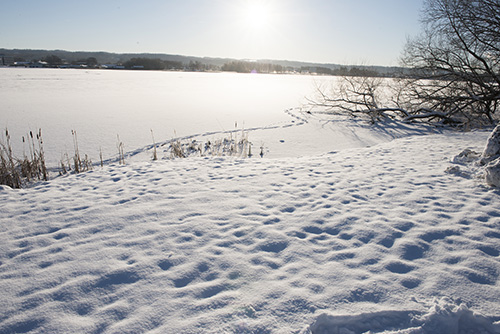Adapt your workplace to winter
Myriam Aries, Professor in Lighting Science, knows how to get more energy when the days are short.

In this part of the world, we are well aware of how the lack of daylight in winter affects our biological clock; that we get tired and even depressed.
Our bodies and minds prefer natural daylight, but the right kind of artificial light, planned correctly, can make a big difference. Lighting science is simply the prerequisite for functional lighting design.
"In the western world, we spend 90 percent of our time indoors. Therefore, we need to create healthy and inspiring light environments in our buildings", says Myriam Aries.
By adjusting the amount of light and the light colour temperature, artificial light can be used to make people feel more alert and energetic. Similarly, the light can make us unwind.
"This knowledge enables us to improve different working environments. For example, we can create better conditions for people who work at night."
Light up your work day
Wake up right! "Wake-Up Light" is a light alarm clock that mimics the sunrise. It helps to suppress the sleep hormone melatonin and increases the excretion of cortisol to make you become more alert.
Make sure you get a lot of light - natural and electric - in the morning between 6 am and 9 am; it helps synchronize your biological clock. If you have the opportunity: walk the dog, ride your bike to work or enjoy a cup of coffee in the morning sun, if there is any.
At the office: try to sit by a window when you work, during your coffee brake or in meetings. Be sure to look out through the windows as often as you can during the day, as this gives you more daylight while the eyes are relaxed.
Go out for lunch to get some daylight and fresh air. You can stretch your legs and your eyes benefit from focusing on longer distances.
Dim the lights after 8.30 pm and try to spend less time in front of the television, tablet or phone. Do not work after 8.30 pm - this helps to stabilize your biological clock and makes it a little easier to wake up. If you have to work, it's better to get up earlier, around 6.30 am. Early birds can get up an hour earlier, night owls can do the opposite.
Your bedroom should be dark and well ventilated - you'll sleep better!
